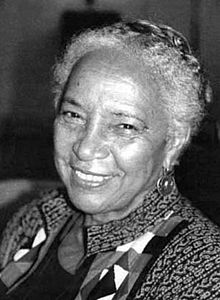It is unfortunate, but true, that our current headlines are little more than tawdry tales of political corruption, deceit and duplicity. Whether it is the intelligence community, the president or his detractors, the public today sees few examples of integrity or moral courage. People with those virtues exist, but they simply don’t receive their deserved attention.
Dr. Margaret Lawrence, who died recently at the age of 105, was the only black member of Cornell University, class of 1936. Because of her race, she was denied on-campus housing and worked as a maid to pay for her education. She compiled a stellar academic record at Cornell and was a member of their prestigious female archery team but was denied admission to Cornell Medical School. A dean told her it was because a Negro man had been admitted 125 years earlier and “it didn’t work out.”
Undaunted, she was accepted to medical school at Columbia University, only the third black woman to be admitted there. She studied with Dr. Benjamin Spock, world-famous author of the best-seller on baby care and parenting. In her own right, Dr. Lawrence became a renowned child psychiatrist and the first African-American psychoanalyst in the United States.
For two decades, she directed the Therapeutic Developmental Nursery at Harlem Hospital in New York City and was chief of the Developmental Psychiatry Service for Infants and Children. Late in life, she finally received a letter of apology from a former president of Cornell, which she accepted with grace.
The late Marvin Miller was recently elected to the Baseball Hall of Fame. Virtually singlehandedly Miller, a shrewd labor negotiator, turned the Major League Baseball Players Association into arguably the most powerful labor union in America and transformed baseball forever. The same week Miller was named to the Hall, the New York Yankees signed pitcher Gerrit Cole to a nine-year $324 million contract, a figure more than 10 times the combined annual salaries of all Major League players when Miller organized the union in 1966.
When he began, Miller’s job was complicated by the fact he was reviled by virtually everyone in baseball. He was despised by baseball commissioners, whom he characterized accurately as lackeys of the team owners. The team owners also detested him; one general manager famously called him “a mustachioed four-flusher.”
At the outset, even the players and press, unaccustomed to labor organizers in baseball, were suspicious of him. It took years before Miller, a prickly person by nature, earned the respect he deserved. While he was alive, the Hall of Fame ignored him, and the final irony is that he is probably the only person in the Hall who publicly refused admission. But today’s Hall would not be complete without Marvin Miller.
In the mid-2000s, Pete Frates was a star baseball player for Boston College. During a game against Harvard, he hit a home run at Fenway Park. Several years after graduation, in 2012 Pete was stricken with amyotrophic lateral sclerosis, the progressive neurologic disease also known as Lou Gehrig’s disease. Although he lost the ability to speak and then to breathe, with the aid of a tracheostomy and a ventilator he lived almost eight years until he died last week. During those years, he married, and he and his wife had a baby daughter.
Even as his disease progressed, Pete, confined to a wheelchair, was determined to help others. In 2014, to raise awareness and funds to cure ALS, he created the “Ice Bucket Challenge,” where participants are videoed having a bucket of ice poured over their heads. The challenge went viral internationally, with actors, athletes and celebrities all taking part. Pete raised more than $200 million for the cause, and at least five genes associated with ALS have been identified. Pete’s enduring legacy will be the Ice Bucket Challenge, along with his rallying cry, “Be passionate, be genuine, be hardworking, and don’t be afraid to be great.”
Paul Volcker, who also died last week, was perhaps America’s most important postwar economist. Named in 1979 by President Jimmy Carter to be chairman of the Federal Reserve Board, he was tasked with taming the rampant inflation crippling the American economy, the result of the 1973 oil shock and 1979 energy crisis. By drastically raising interest rates, he accomplished a goal that many believed was impossible. It was a bold, but controversial political move, because it ushered in a recession during President Ronald Reagan’s first term.
Volcker was willing to endure the harsh criticism, realizing that inflation was the greater long-term risk. It eventually cost Volcker his chairmanship, but he was vindicated when inflation moderated, and Reagan was re-elected in the midst of a rebounding American economy.
A financial colleague who reviewed Volcker’s memoirs wrote, “Paul Volcker is the greatest man I have known. He is endowed to the highest degree with what the Romans called virtus (virtue): moral courage, integrity, sagacity, prudence and devotion to the service of country.”
For a society to thrive, character is essential. That’s why courageous stories like that of Dr. Lawrence, Marvin Miller, Pete Frates, Paul Volcker are ultimately of greater importance than the crude politics of our day.

